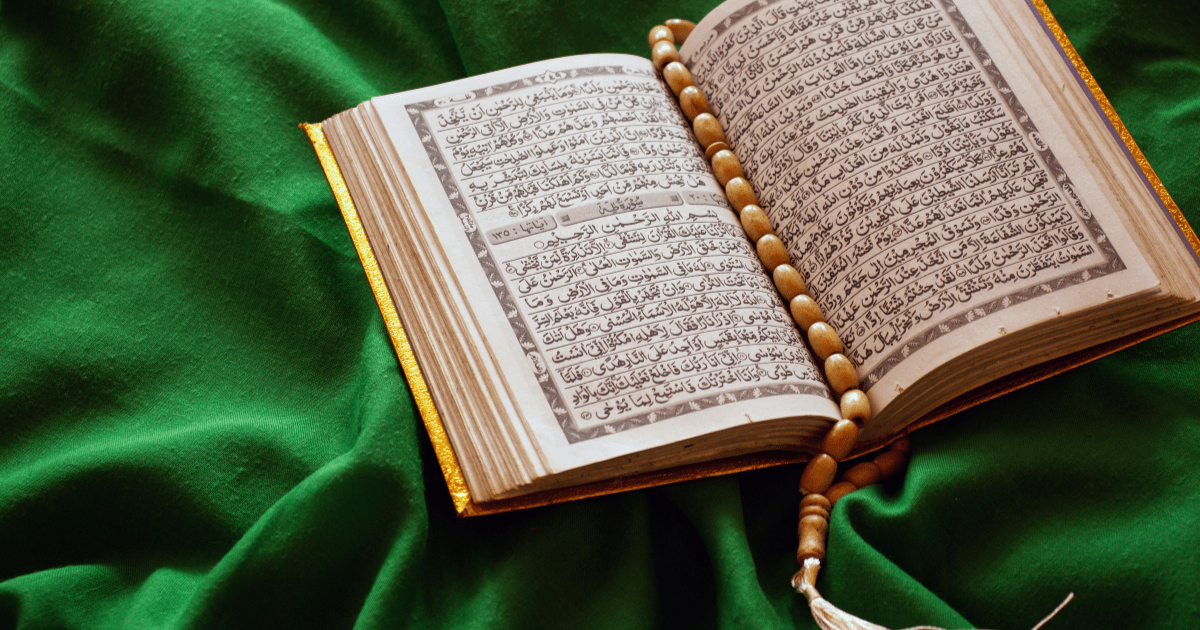Ramadan: Fasting, Reflection, and Prayer
 Written by: Denny Liu
Written by: Denny Liu
Photo by: Ali Burhan on Unsplash
This blog was originally posted on International Connections, the IESC blog - check it out here!
Ramadan is a sacred month in Islamic culture, observed by Muslims all around the world. This year, it begins on Tuesday, April 13th, and ends on Wednesday, May 12th. These dates are determined by the phases of the moon and therefore will vary every year. The sighting of the new crescent moon marks the first day of Ramadan and the beginning of the ninth month of the Islamic or Hijri calendar. It commemorates the time when the Prophet Mohammed (or Muhammad) received the verses of the Qur’an from God, the holy book in the Muslim religion. It is believed that this happened during Ramadan, on Laylat Al-Qadar, or the “Night of Power” and it is traditionally celebrated on the 27th day of the month. Since Ramadan is celebrated in many places around the world, different regions or countries have different traditions that they practice during this time.
Ramadan is a month of fasting. Fasting, or sawm, and is one of the Five Pillars of Islam, which are the main principles or acts of the Muslim religion. During Ramadan, Muslims partake in a daily fast from sunrise to sunset, meaning that they abstain from eating, drinking, and immoral acts and behaviours during daylight hours. Fasting is a time of self-reflection, for Muslims to become closer to God, and to practice patience. It is also a way to remind the person fasting about those who are in need and experience hunger often. It encourages anyone partaking in Ramadan to feel gratitude towards what they have.
A common tradition is to break the daily fast by eating dates.
The first meal of the day during the month of Ramadan, sometimes known as suhur (or other names depending on the location), is eaten before sunrise. The fast is broken at the end of each day after sunset, with a meal called iftar. This is often a meal shared with family and friends. The type of food served at these meals varies according to the local culture Ramadan is being practiced in, although traditionally, dates are the first thing eaten to break the daily fast.
Ramadan is also a time for prayer. Prayer becomes especially important during Ramadan, as it is a time of reflection and growing one’s relationship with God. In the Muslim religion, prayers are said five times during the day. During the month of Ramada, an extra prayer is often performed in the evening, after iftar. This prayer is tarawih, or taraweeh, and is usually held in mosques as a congregation. The name taraweeh is an Arabic word that translates to “rest and relaxation.”
Reading from the Quran is part of the taraweeh prayer.
Eid al-Fitr marks the end of Ramadan and the beginning of the tenth month of the Islamic calendar, otherwise known as Shawwal. This “festival of breaking the fast” is a celebration of the end of a successful fast. During this time, people gather with their family and friends for meals and prayers. There are special prayers for this time, known as Salaat al-Eid that commemorate Eid and the end of Ramadan. Treats are exchanged with others, and children often receive gifts. Another of the Five Pillars is also practiced during this time, called Zakat al-Fitr, in which Muslims pay an obligatory donation to charity, as gratitude and giving are important parts of both Ramadan and Eid.
Ramadan Murbarak! (Happy Ramadan!)
Published on

